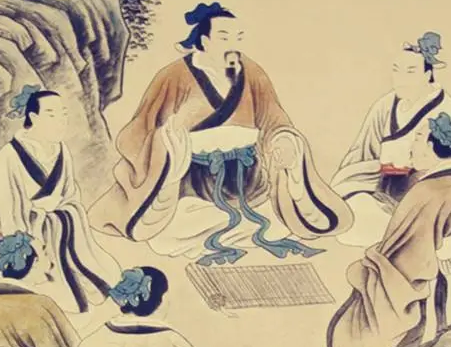In Chinese history, the Hundred Schools of Thought is a very important intellectual and cultural phenomenon. During this period, various thought schools vigorously debated and put forward various theories and views. Then, what was the reason for the Hundred Schools of Thought? What kind of impact did it have? This article will explore this issue from multiple perspectives.

First Paragraph: Background Introduction
From 475 BC to 221 BC was the Warring States period in Chinese history. During this period, significant changes occurred in China's politics, economy, and culture. Among them, the Hundred Schools of Thought was an important intellectual and cultural phenomenon. During this time, various thought schools vigorously debated and put forward various theories and views.
Second Paragraph: Reasons for the Hundred Schools of Thought
1. The Need for Social Change: During the Warring States period, Chinese society underwent massive transformation and development. Significant changes occurred in politics, economy, culture, and other aspects. This transformation and development required new ideas to guide people's actions and thinking. Therefore, various thought schools emerged, and the Hundred Schools of Thought followed.
2. The Need for Academic Exchange: During the Warring States period, wars and conflicts frequently occurred between various states. To achieve victory in these wars, each country needed powerful military forces and wisdom. Therefore, academic exchange became particularly important. The exchange and mutual learning among different thought schools promoted their respective development and growth.
Third Paragraph: The Impact of the Hundred Schools of Thought
1. Promotion of Chinese Philosophy: During the Warring States period, various thought schools contributed to philosophy, forming the pluralism and complexity of Chinese philosophy. For example, Confucianism emphasized benevolence and ritual governance, Taoism advocated non-action governance, and Mohism advocated universal love and non-aggression. These different thought schools interacted and borrowed from each other, promoting the development of Chinese philosophy.
2. Promotion of Scientific and Technological Development: During the Warring States period, various thought schools also contributed to science and technology, promoting the development of Chinese science and technology. For example, Yin-Yang School explored natural laws, Ming-Jia studied the relationship between names and reality, and Fa-Jia advocated governing the country with law. These different thought schools interacted and borrowed from each other, promoting the development of Chinese science and technology.
Disclaimer: The above content is sourced from the internet and the copyright belongs to the original author. If there is any infringement of your original copyright, please inform us and we will delete the relevant content as soon as possible.
































